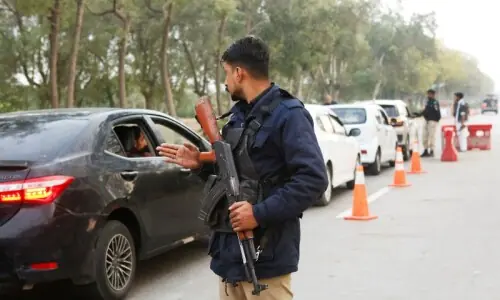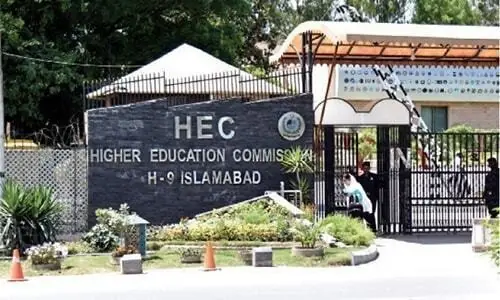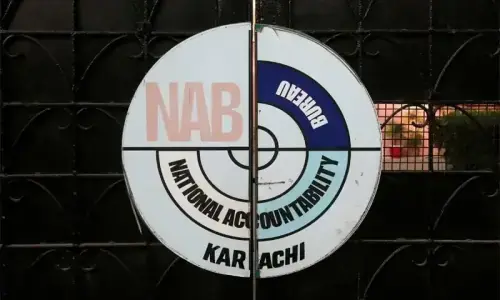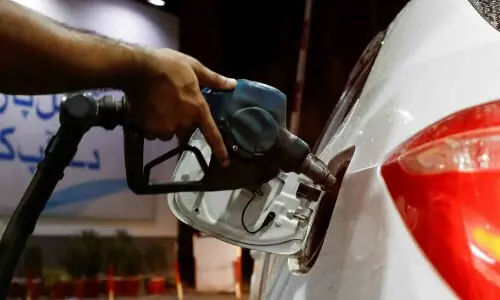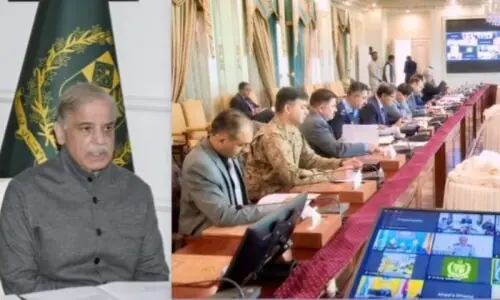KARACHI: With authorities trying to confront the coronavirus challenge, Karachi is facing another health crisis as hundreds of thousands of patients suffering from other ailments have been left without regular treatment due to the closure of outpatient departments (OPDs) of both public and private hospitals, it emerged on Tuesday.
Even many emergency departments are reluctant to give treatment to patients out of fear, panic and severe shortage of personal protective equipment (PPE) among doctors and health staff.
The situation emerged almost two weeks ago when the Sindh government announced its social-distancing campaign with orders to close educational institutions for the next two months as well as shutting shopping malls, markets, major business centres, parks, cinemas and other public places. This had pushed the hospitals both in public and private sector to reduce their regular operations, which later on finally came to almost a complete closure.
A large number of patients suffering from other diseases are waiting for their regular treatment
When contacted, a health department official said that there was no advisory from the government to hospitals to suspend their regular operations. However, the official agreed that the practice was going unchecked resulting in hardship of hundreds of thousands of people suffering from several other diseases and many of them were high-risk patients, who required frequent medical consultation and examination.
“Hospitals are only advised to follow the guidelines for their doctors and health workers to keep their regular business as usual but unfortunately the situation is not what we expected,” said the official without mentioning any particular reason for such a negative trend.
Experts express concerns
Health experts and professionals have shown concern and advise immediate measures both from the government and the institutions as well.
“Unfortunately, the situation [emerging in the wake of Covid-19 pandemic] has stirred a state of panic among healthcare professionals and hospitals across the country,” Dr M. Shamvil Ashraf of the Indus Health Network told Dawn. “Almost all outpatient departments are closed and many emergency departments are reluctant to give treatment out of fear that a patient maybe a Covid-positive one.
“There is a widespread fear among healthcare professionals of contracting the coronavirus infection. This concern is genuine to a large extent but there are guidelines for protection to prevent transmission,” he added.
He said that doctors and health workers needed to take all possible measures to protect themselves while dealing with suspected cases but hospitals could not deny care because of panic and fear.
“Who will be responsible for the health deterioration or complications, which can be fixed through a simple regular treatment, in a patient of diabetes or hypertension when not entertained just because of fear?” Dr Ashraf asked.
Major public and private hospitals in the city have even closed their emergencies and those hospitals operating their emergency departments have not been taking patients or providing them any other treatment.
The regular appointments of senior consultants and physicians have been cancelled and the patients are told to contact later without giving any specific time period.
A large number of people, who are showing respect for doctors and health workers for playing a front-line role, also question the professional approach of those avoiding seeing their regular patients out of fear.
The people suffering from the current situation and the health professionals find the government role crucial in the emerging crisis for the patients of other diseases, urging the authorities to provide the doctors all due PPE and then make sure they are doing their jobs.
“The health workers who are treating or handling coronavirus patients are doing an extremely great service and they need to be protected,” said Dr Qaiser Sajjad of the Pakistan Medical Association. “We have been appealing both the provincial and federal governments to provide PPE to all those health workers exposed to the virus due to their professional contribution. Once they are equipped and protected, they would not show any fear to meet the challenge.”
Published in Dawn, April 1st, 2020



